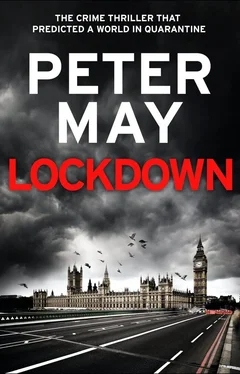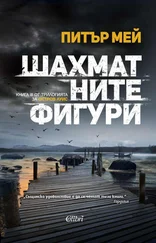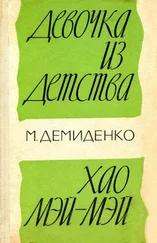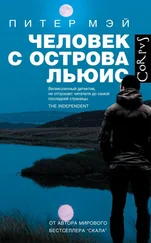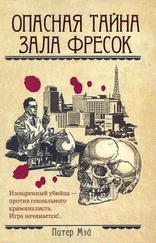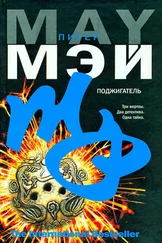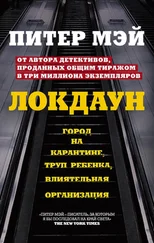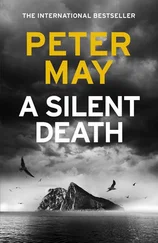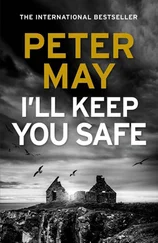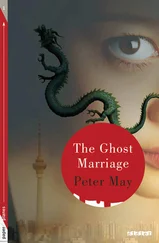MacNeil pulled his car up on to the central reservation before the roundabout at the end of the road, and they hurried up a ramp and through an access gate in the hoardings. The red asphalt which circled the Dome was littered with vehicles and masked medical staff coming and going. It was chaos. There were no notices to guide visitors, because visitors were not expected. Martha and MacNeil had no idea what door to go in, or who to ask for. There was no security, and no one gave them a second look as they walked into the vast, cavernous space enclosed by white plasticised canvas.
The din that filled the air was extraordinary. The roar of the space heaters overhead. The thousands of voices raised above the sounds of the sick. The sneezing and coughing and groaning and retching. A bed was wheeled past by pale-looking orderlies in white pyjamas. The young man on it was dead, barely covered by his blood-and-vomit-stained sheet, open eyes staring into the void. MacNeil wanted to be sick. His son was here somewhere. In this hell. If he was going to die, then he’d rather take him home to die there. He grabbed a nurse by the arm and she wheeled around. ‘What is it?’ He could see the dog weariness in the shadows of her face, eyes clouded like cataracts. She was suffering from death fatigue, and a lack of patience with the living.
‘My son’s here somewhere. He was brought in this morning.’
A fleeting moment of humanity cut through her tiredness. ‘Go outside and follow the road round to Gate C. That’s where the new arrivals are brought in.’ And she was gone again, off into the honeycomb.
MacNeil took Martha’s hand, and they escaped for a few brief moments into the fresh air, and relief from the sounds of the dying. They ran around the perimeter of the Dome pushing and bumping their way through groups of workers who called after them in anger. But there was something compelling now about the need to find their son. Double doors stood wide open at Gate C and they ran in to find a temporary reception desk, where a record of the patients being brought in was being made on a computer. An older nurse seated on the other side of the desk looked at them warily from behind her mask. ‘Can I help you?’
‘Our son was brought in this morning,’ MacNeil said. ‘Sean MacNeil. He’s eight years old.’
‘We have no facilities for visitors here. I’m sorry.’ But she didn’t sound it. ‘We have an emergency number. The switchboard is manned twenty-four-seven.’
There was a clipboard on the desk beside her, with a floor plan and names written in pencil. It didn’t occur to MacNeil immediately that the reason they pencilled in the names was because it would be easy to rub out and replace them. If he’d thought about it, he’d have realised it made sense, given the turnover. Instead, he instinctively reached over and grabbed it.
‘Hey!’ The nurse tried to snatch it back, but MacNeil held it out of her reach. ‘I’ll call the police,’ she said, a hint of hysteria creeping into her voice.
‘I am the police,’ MacNeil said. He ran his eye quickly down the floor plan. There were more names than he could absorb. The floor had been divided into sections, and there were half a dozen pages beneath the top one on the clipboard. ‘I can’t see him,’ he said to Martha, a hint of panic now in his voice. He flipped through the pages.
The nurse sighed deeply and ran her fingers lightly over her computer keyboard, then she reached over and took the clipboard back from MacNeil. She found Sean on page three. ‘Section 7B,’ she said. ‘Follow the arrows painted on the floor. Seven is yellow.’
Sean was in a subdivision of section seven with three other children. He and two of the others were on drips. There were patches of high colour on his cheeks, but otherwise he was deathly pale. His bed sheets were soaking and twisted around his tortured body. He was only semi-conscious and seemed delirious, racked by occasional bouts of uncontrollable coughing. They could hear the liquid rattling in his lungs and throat. A masked medic in white overcoat and gloves stopped them from getting any closer. ‘What the hell are you people doing here?’
‘That’s our son,’ Martha said, her voice barely a whisper, so that she had to clear her throat and say it again, more loudly.
The medic glanced wearily at Sean and shrugged. ‘I’m sorry.’ Everyone was sorry.
‘What are you doing for him?’ MacNeil asked.
The medic unhooked the clipboard from the foot of Sean’s bed and scanned the chart. He sighed. ‘We’ve put him on steroids. He’s following the usual pattern. He’s developed ARDS.’
‘What does that mean?’ Martha clutched the arm of her estranged husband.
But MacNeil knew what it meant. Early in the emergency, all police officers had been briefed on symptoms and the course that the flu almost invariably took. It would start, like any other flu, with body aches, fever, sore throat, a cough. And then degenerate quickly into a progressive and irreversible respiratory decline that was called Adult, or Acute Respiratory Distress Syndrome — ARDS. It started like pneumonia, but wouldn’t respond to antibiotics or antivirals. He knew that steroids were a last resort, but even they were unlikely to stop the progressive inflammation, leading to protein leakage, fibrosis and finally death.
‘It means it’s all down to how strong your kid is,’ the medic said. ‘How effective his immune system is at fighting it.’
MacNeil looked at the tormented little boy in the bed. He seemed so small and vulnerable. Grown men were dying from this flu. Big, strong, tough men cut down like straw in the wind. What hope did a child have? He closed his eyes, overwhelmed by a sense of helplessness. He was the boy’s father, for God’s sake! He was supposed to protect him, to keep him safe, to see him grow into adulthood. MacNeil opened his eyes again as he heard his son convulsed by a relentless, retching cough, and he felt tears filling them. ‘How long?’
The medic shrugged. He was just as powerless to do anything about it as the boy’s father. ‘If he makes it through the next hour,’ he said, ‘then maybe he has a chance.’
Outside, MacNeil pulled his mask aside and drew the cold January air deep into his lungs. He put his arm around Martha’s shoulder and felt her whole body shaking from the sobs she was trying to contain. They walked in a trance through the comings and goings, oblivious to the world around them. Back out through the gate and down on to Millennium Way. There were more hoardings on the far side of the road, and they passed through an opening, a hand-painted sign pointing them towards the Motel Millennium where accommodation and food was available at two hundred metres. But all they found was dereliction. Crumbling brick houses boarded up. A vacant lot strewn with debris, weeds and grass poking up through cracks in the tarmac. A rusted lamp post leaned at an impossible angle. Great mounds of excavated earth were piled up along the perimeter of the old Ordnance Wharf. This, then, was the great millennium dream. Bleak, derelict, bankrupt. A sad reflection of their own lives. A marriage in tatters, a child hovering in that impossible place between life and death.
The skyscrapers of Canary Wharf pushed up through the mist on the other side of the mirrored loop in the river. Harbingers, or so their architects had hoped, of a new age of prosperity and regeneration. But, in fact, as soulless as the people who had built them, deserted now, stalked by fear.
A sound like crackling came from across the water, echoing over its slow, sullen ebb. Martha lifted her head, like an animal sniffing the air. Instinct, rather than interest, provoked her question. She had no real interest in the answer. It was just something to say. ‘What’s that?’
Читать дальше
